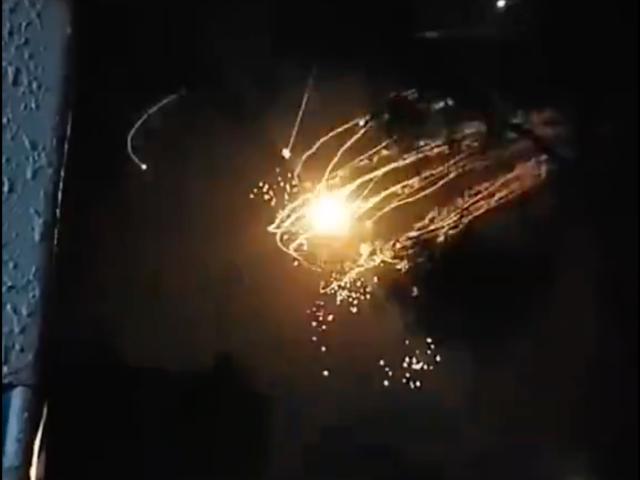Israel has pledged a decisive response to Iran following a substantial aerial attack over the weekend, marking a significant escalation in tensions. Over 300 Iranian drones and missiles targeted Israeli military installations on Saturday, an act that U.S. President Joe Biden labeled as "unprecedented."
In response to these aggressive maneuvers, Israel is contemplating robust retaliatory actions against Iran. "Direct strikes are being considered seriously as they represent the most straightforward path to reestablish deterrence," stated Ryan Bohl, a senior analyst at Rane Network, specializing in the Middle East and North Africa.
The Islamic Republic of Iran want you to accept 160 tons of explosives directed at an entire country is simple retaliation for Israel mushing up a handful of IRGC military fukstix in an precise, targeted strike.
— Joo🎗️ (@JoosyJew) April 14, 2024
Those obsessed by "proportionality" have been terribly quiet today. pic.twitter.com/QowODwdHdH
However, Bohl, in a televised interview with NBC News in the United States, emphasized the need for Israel to maintain strategic caution to avoid escalating into an open conflict with Iran. He suggested that Israel might pursue "covert escalation" tactics aimed at intensifying their ongoing clandestine operations without triggering a full-scale war.
Despite the tensions, the U.S. has reassured Israel of its unwavering support, though it has made it clear through a senior administration official that it will not engage in offensive operations against Iran. President Biden's commitment remains focused on supporting Israel's defense, not direct involvement in its offensive strategies.
Discussing Israel’s options of retaliation against Iranian aggression on @CNNSOTU with @jaketapper and @BarakRavid. Israel has to get US support and set in motion a new strategy against Iran, designed to create a safer environment for Israelis to live in. pic.twitter.com/jZjpMAdw1U
— Jonathan Conricus (@jconricus) April 14, 2024
Israel's Defense Minister Benny Gantz has also expressed intentions to form a regional coalition to address this challenge, aiming to "exact a price from Iran at a time and manner that suits Israel best."
The catalyst for Iran's attack was an Israeli strike earlier this month on its embassy compound in Damascus, which resulted in the deaths of several Iranian military personnel, including high-ranking officers. Iran justified its actions as self-defense, sanctioned under Article 51 of the UN Charter, responding to what it claims are repeated Israeli aggressions.
🚨 Breaking: Israel 🇮🇱 Minister of Diaspora @AmichaiChikli hints at the magnitude of Israel's retaliation:
— Dr. Eli David (@DrEliDavid) April 14, 2024
“We will treat every missile fired on Israel as if it hit the intended target, and we will retaliate accordingly.”
This incident underscores the long-standing animosity between Israel and Iran, which has often spilled over into neighboring regions. Iran's support for various groups hostile to Israel, such as Hamas in Gaza, Hezbollah in Lebanon, and other forces in Yemen and Syria, continues to exacerbate the regional instability.
David Roche, a global strategist, predicts a tactical Israeli response within the week, though he anticipates that it will not extend to attacking Iranian oil infrastructure, which could alienate key international allies. However, Roche does not dismiss the possibility of a more severe Israeli response targeting Iran's nuclear capabilities in the future, which could have significant global economic repercussions.
Message to the world, if they’ll hear us now. pic.twitter.com/RIqVB6Aw9o
— Elica Le Bon الیکا ل بن (@elicalebon) April 15, 2024
As the situation unfolds, Iran has indicated a temporary cessation of its military actions but remains poised for further responses if provoked. In a recent statement, Iran's UN mission warned of more severe consequences if Israel were to escalate the conflict further.
This ongoing conflict continues to pose a risk not only to regional stability but also to global economic interests, particularly in critical areas like the Strait of Hormuz, a vital artery for oil shipments where recent tensions have already manifested in the seizure of an Israeli-linked container ship by Iran.


